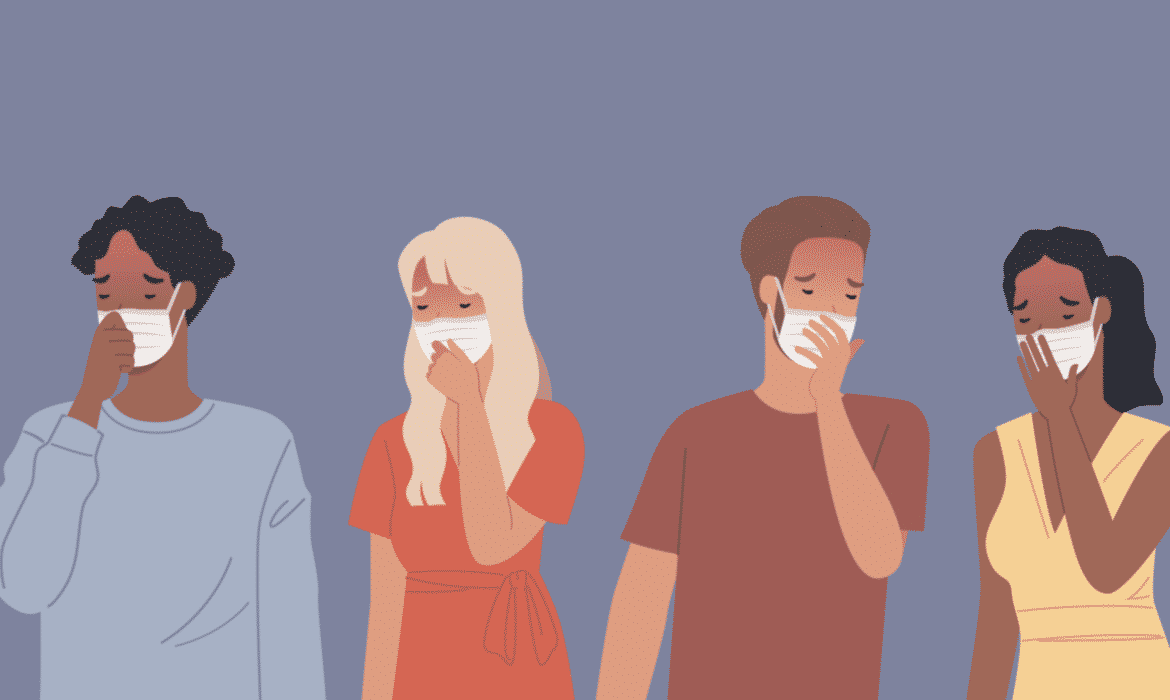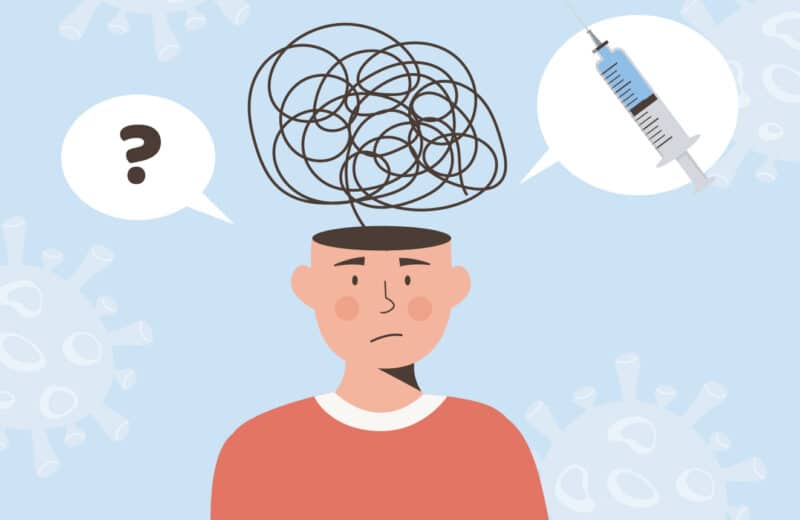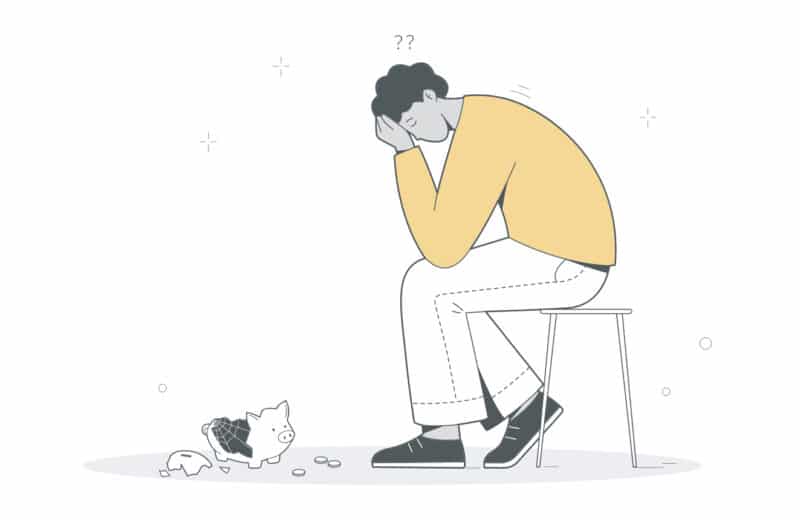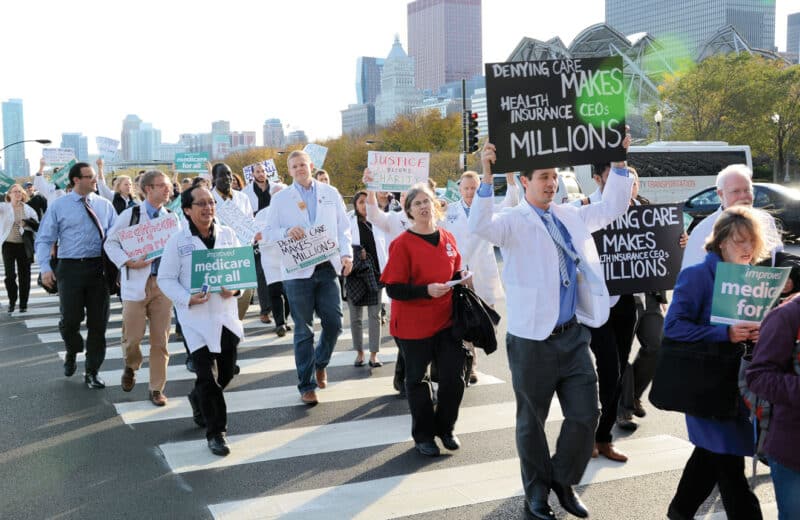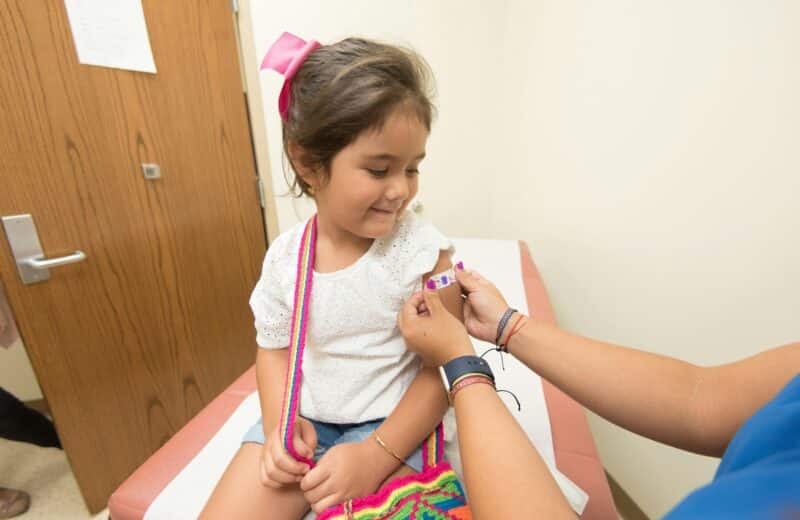Patrick Malia, then-37, felt sick enough on March 12 to visit an urgent care center, wondering if he had Covid-19. The Elgin sterile processing tech’s young son had nausea and a high fever — 103 degrees — the week before; his wife, Keri, also was ill. Now, Malia — who had mild, well-controlled asthma — was coughing and feeling short of breath, while running a fever.
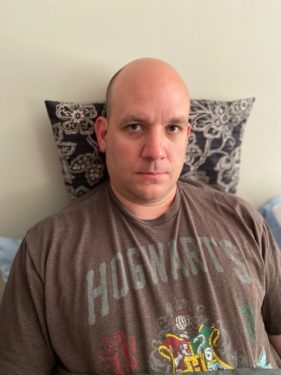
Over the next few days, Malia’s symptoms worsened. He visited the emergency department twice, struggling to breathe. Doctors ran tests but declined to check him for Covid-19, because Malia didn’t meet criteria at the time for testing, which primarily included having traveled outside the country. He says providers told him they needed to save the tests for people who really needed them.
For most of March and April, Malia hunkered down at home. Climbing stairs or walking more than 10 feet winded him. He experienced near-constant headaches, brain fog, chest pain, and debilitating fatigue. Formerly healthy, Malia now felt at times “like I had been hit by a bus.” The symptoms plagued him for weeks. Finally, in late April, he saw a pulmonologist.
“He said, ‘Dude, you had corona,’” Malia says. “He was like, ‘I don’t need a test. I can tell based on your symptoms. You had it.’”
And most of those symptoms linger, preventing him from returning to work.
Lasting symptoms
Malia classifies as a long-hauler — one of thousands of people worldwide who have symptoms related to Covid-19 long after their acute illness has passed. Many have never been hospitalized, yet they suffer disabling after-effects for weeks or months. This mystifies their doctors, who grapple with how to treat them.
Common symptoms of long-haul syndrome include overwhelming fatigue, breathlessness during mild activities, joint pain, chest pain, racing or palpitating heart, difficulty concentrating, short term memory loss, and persistent loss of smell. Some report mental health symptoms, including chronic stress. Many are unable to return to jobs or the active lives to which they had been accustomed.
A preliminary, 100-patient study also points toward a higher-than-average risk of heart failure and heart inflammation among Covid-19 survivors. This happens even among people who never experienced symptoms of Covid-19 or who had only mild symptoms.
So far, scientists know little about how many long-haulers exist or what their prognosis is. One new study from the Centers for Disease Control and Prevention found that 35% of Covid-19 patients who had not been hospitalized still had symptoms two to three weeks after their diagnosis. While people over age 50 reported stronger effects, 19% of young people (ages 18 to 34) with no prior medical conditions combatted persistent symptoms.
Hospitalized people reveal the same pattern. A survey of 143 Covid-19 patients in Italy, ranging from ages 19 to 84, found that 87% still had at least one persistent symptom two months after discharge, with fatigue (53%) and shortness of breath (43%) most common. Patients also cited joint pain (27%) and chest pain (22%).
Recently, some experts, such as Anthony Fauci, MD, director of the National Institute of Allergy and Infectious Diseases, have suggested some of the symptoms of long-haul syndrome resemble myalgic encephalomyelitis, commonly known as chronic fatigue syndrome. Brain fog, fatigue, and difficulty concentrating signal a post-viral fatigue syndrome associated with Covid-19, Fauci says.
The body’s inflammatory response to the virus causes some of the secondary complications, says Susan Bleasdale, MD, associate professor of clinical medicine and an infectious disease specialist at the University of Illinois at Chicago. Such a response happens with other viruses, too.
“Your immune system gets turned on to fight this, and it’s hard to get it turned off again,” she says.
Covid-19 patients who spent time in intensive care units, including those on ventilators, face a variety of ongoing complications, such as blood clots, strokes, cardiac issues, neurological pain, memory loss, and cognitive deficits, says Mahesh Ramachandran, MD, chief medical officer at Marianjoy Rehabilitation Hospital, part of Northwestern Medicine. As of early July, the hospital had provided post-acute rehab for nearly 100 people with Covid-19.
Ramachandran says most Covid-19 patients at Marianjoy recover at least some functioning. However, he says, “It’s too early to say if they will get 100% back to normal or if they will still have mild deficits in certain areas. That we don’t know as yet.”
Research into Covid-19’s long-term effects is ongoing, he says. One surprising finding shows that young people often have cognitive issues after having Covid-19. He mentions “a new subset of the population — the younger generation that haven’t necessarily been ventilated — who are having some of the neurologic and cognitive manifestations that we didn’t typically think they would get.”
Mount Sinai Hospital in New York announced in May the nation’s first post-Covid-19 care center, to treat and study people with long-term Covid-19 complications. European physicians are setting up similar facilities.
Bleasdale says Chicago doesn’t have anything quite like this. However, she says, the city’s major medical centers “are evaluating and researching what Covid is causing for patients.”
Ongoing struggles
Most of Malia’s symptoms have continued, though his cough has abated. A variety of tests, including an echocardiogram, electrocardiogram, pulmonary function test, and chest CT scan ruled out heart problems. The knowledge, though, hasn’t helped him find a remedy for his symptoms.
Malia says his pulmonologist and primary care doctor have told him they have nothing more to offer him right now. “So, I’ve been trying to figure it out myself,” he says.
He consults online support groups, such as a private Covid-19 long-haulers Facebook group for those ill for at least 80 days. The group includes about 5,100 members worldwide. Such groups provide not only information but also hope, because some members recover, Malia says.
More frustrating is seeing people not taking Covid-19 seriously — going without masks at grocery stores and hardware stores, for instance, which Malia calls “playing with fire.”
“You still get people saying, ‘Oh, it’s just the flu. I’ll be fine. I’ll take my chances.’ And they don’t think about the after-effects and what it can do to you in the long run,” he says. “Short term, you may be fine, but what are the long-term effects?”
As the weeks pass, Malia continues to struggle with up-and-down symptoms. “I’ll have a day where I feel 80% like my old self,” he says. The next day, he feels slammed all over again.
Learning to pace himself helps, he says, minimizing the days he can’t get out of bed. Malia questions, though, whether this means he’s getting better or just getting better at managing his condition.
His illness also leaves his 4-year-old son uneasy. “He’s had nightmares of me dying,” Malia says. When Malia went to the doctor recently, his son cried hysterically because he thought his father went to the doctor’s office to die. Malia had to call home to reassure him.
Later, he says his son told him, “You’ve gotta tell your doctor to fix you.”
Malia plans to seek out specialists to help him allay his ongoing fatigue, brain fog, headaches, chest pain, shortness of breath, and other symptoms. He has returned to work with a limit of six hours per day as he regains his strength and continues recovering.
And he continues to research and rest when he can. He hopes for the day he can resume his life, finally free of Covid-19.

